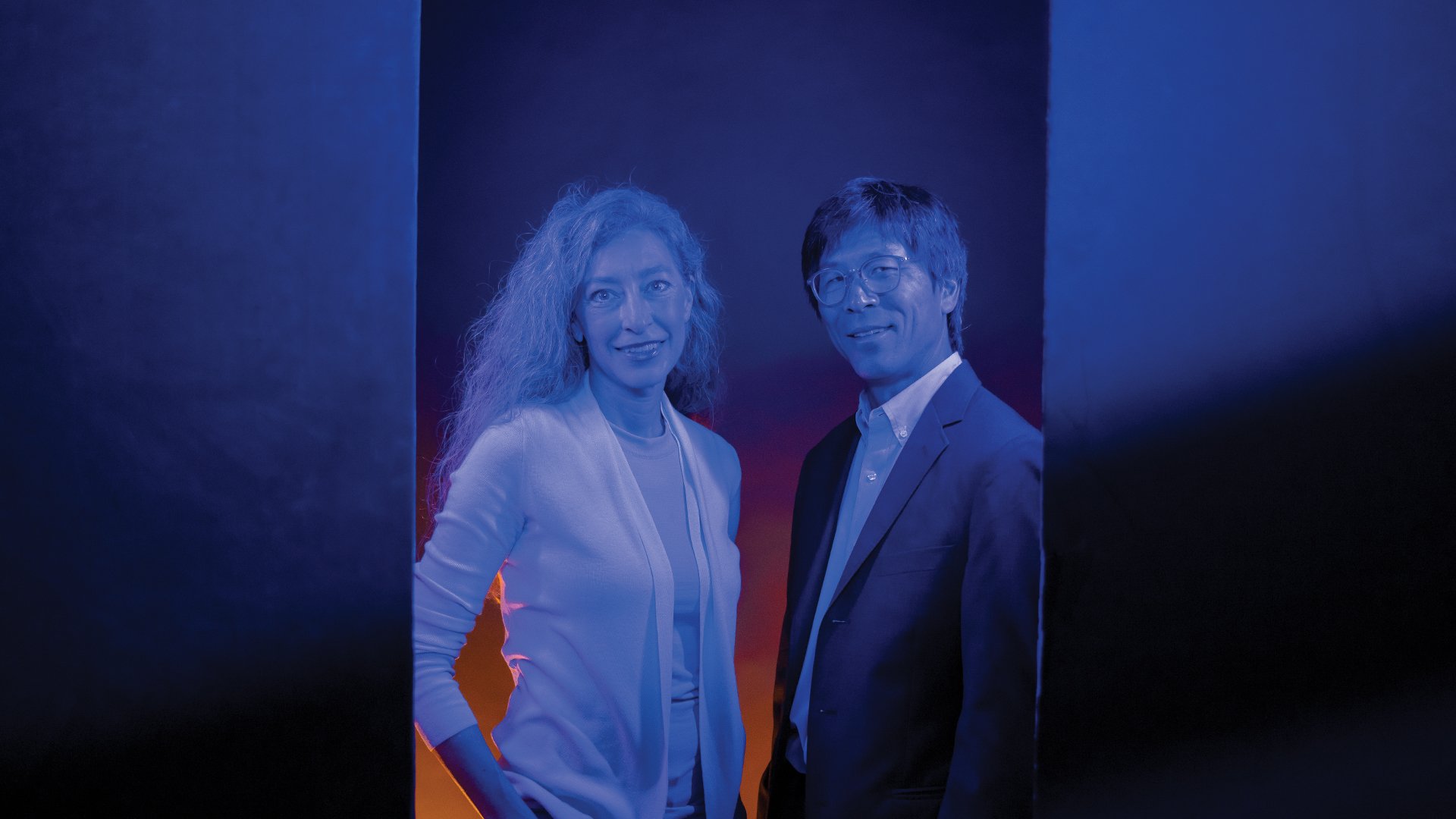
Eliminating Cancer, Cell by Cell
William Matsui, M.D., & Jennifer Maynard, Ph.D.
New cancer therapies being developed at UT will be able to target specific cancer cell types using the body’s own immune response.
The result? Faster, more effective treatment with
fewer side effects.
Cancer drugs have come a long way since the advent of chemotherapy. But even newer options like antibody therapy — which activates the body’s own immune system, and targets tumor cells more closely than the radiation blast of chemo — can still lack precision.
Homing in on a new approach are William Matsui, M.D., deputy director of the Livestrong Cancer Institutes at Dell Med, and Jennifer Maynard, Ph.D., professor in the McKetta Department of Chemical Engineering at UT’s Cockrell School of Engineering. Together, they’re using Maynard’s expertise in producing highly tailored molecules to target not just tumor cells, but the cells of a specific cancer type. Their current focus, pancreatic cancer, is particularly deadly because of how quickly it spreads. More than 50,000 people in the U.S. alone are predicted to die from pancreatic cancer in 2023, out of the nearly 65,000 expected diagnoses.
“People have been targeting cancers with antibodies for years. But drilling down to the specific subtype and going beyond the initial tumor to where the cells have spread is unique,” Matsui says. “This approach involves looking for two different types of proteins that exist together, rather than just the one molecule. It ultimately means we could have much more flexibility to create different types of therapies for an infinite number of other very specific targets, even beyond cancer.”
Partnerships
- Cockrell School of Engineering
- Dell Medical School
- Texas Biologics
A New Chapter for Cross-Campus Therapeutic Research
The team is funded by a pilot grant from Texas Biologics, a coalition of UT researchers working on therapeutics for cancer, infectious disease and more. With more clinical partners at the ready through Dell Medical School, collaborations leveraging the strength of UT’s basic science and engineering researchers are poised to have a much faster pathway to direct patient impact.
“Cancer touches everyone’s life at some point,” says Maynard, who was recently named to the National Academy of Inventors. “And with a grant like this, Texas Biologics is really giving us some time and space and funding to try out this early idea before we pursue it in a bigger way, which is a really crucial part of a project to have supported.”
